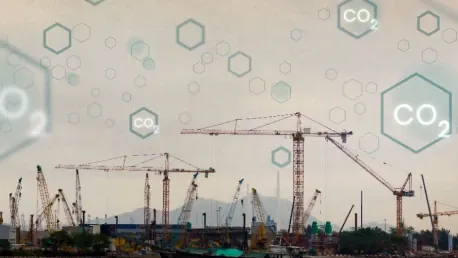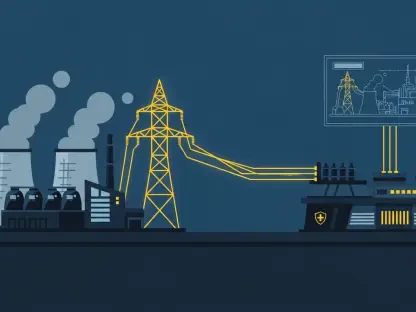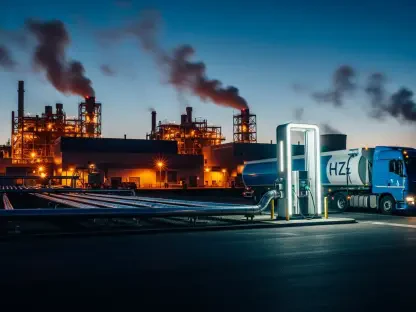Addressing climate change through technological advancement has become a critical priority, and the recent launch of the ARC Centre of Excellence for Carbon Science and Innovation at UNSW Sydney marks a significant stride towards this goal. Supported by a substantial AU$ 35 million grant from the Australian Research Council (ARC) and contributions from both industrial and academic partners, the Centre is set to revolutionize the development of green technologies. By focusing on creating metal-free, carbon-based products designed to produce clean chemicals and renewable energy with zero emissions, this initiative aims to phase out traditional fossil fuel systems and minimize reliance on noble metals or critical mineral catalysts.
The Mission for Global Decarbonization
Developing Metal-Free Carbon-Based Products
One of the primary objectives of the newly established Centre is to develop cutting-edge, metal-free carbon-based products capable of producing clean chemicals and renewable energy without the harmful emissions typically associated with fossil fuels. This paradigm shift toward utilizing sustainable resources and technologies is intended to help minimize environmental damage and foster economic growth through the establishment of a circular carbon economy. The move to replace traditional catalysts with carbon-based alternatives is a groundbreaking innovation that could ultimately render conventional fossil fuel systems obsolete.
The Centre’s focus on eliminating the need for noble metals or critical mineral catalysts is essential for sustainable development. Not only does this significantly reduce extraction and processing costs, but it also minimizes environmental degradation and resource depletion. As the demand for clean energy and sustainable chemical production continues to rise, the Centre’s pioneering efforts in this field are expected to play a crucial role in the global transition to greener technologies. By harnessing the potential of carbon-based materials, the initiative seeks to create scalable and economically viable solutions for achieving zero-emission goals.
Interdisciplinary Collaboration and Environmental Preservation
The interdisciplinary collaboration that the Centre facilitates is another key factor in its potential for success. Bringing together researchers from seven Australian universities, six industry and government organizations, and various international partners, the Centre aims to leverage a wide range of expertise to address complex climate challenges. The collaborative approach ensures that multiple perspectives and innovative ideas are considered, ultimately leading to more effective and impactful solutions that can be implemented on a global scale.
Environmental preservation is at the forefront of the Centre’s mission, with the goal of generating clean energy and chemicals using waste-derived carbon-based catalysts. This not only helps reduce greenhouse gas emissions but also promotes the sustainable use of resources. By transforming waste into valuable products, the initiative supports a circular economy where materials are continually reused, thereby reducing the environmental footprint of production processes. The economic opportunities generated by these advancements further underscore the potential for positive change, demonstrating that environmental sustainability and economic growth can go hand in hand.
The Urgency of Tackling Climate Change
Addressing Environmental Crises through Innovation
The urgency to address climate change has never been greater, as evidenced by a series of environmental crises and global discussions like COP29. Events such as rising ocean temperatures, severe flooding in Europe, and the growing threat of sea-level rise in the Pacific region highlight the immediate need for technological innovations that can mitigate these effects. The competitive process of securing a Centre of Excellence through the ARC’s rigorous evaluation emphasizes the importance of impactful and sustainable outcomes, galvanizing researchers to develop practical solutions to environmental challenges.
The Centre’s focus on creating advanced technologies that harness carbon-based catalysts derived from waste material is a prime example of innovative science being applied to solve real-world problems. By capitalizing on existing resources, the initiative not only addresses immediate environmental concerns but also sets a precedent for sustainable energy and chemical production practices. This proactive approach could significantly alter the current paradigm, demonstrating the power of technology and collaboration in driving meaningful change.
Government Investment and Real-World Applications
Addressing climate change through technological innovation has become a critical priority. The recent establishment of the ARC Centre of Excellence for Carbon Science and Innovation at UNSW Sydney marks a major leap towards achieving this mission. Boosted by a generous AU$ 35 million grant from the Australian Research Council (ARC) and additional support from industrial and academic partners, the Centre aims to transform the realm of green technologies. By focusing on the development of metal-free, carbon-based products, the initiative seeks to produce clean chemicals and renewable energy with zero emissions, ultimately phasing out traditional fossil fuel systems. This groundbreaking effort is designed to reduce dependence on noble metals or critical mineral catalysts, which are often resource-intensive and environmentally damaging. The Centre’s mission aligns with global objectives to combat climate change, indicating a promising future for sustainable energy solutions and a significant shift towards a greener industrial and environmental landscape.









